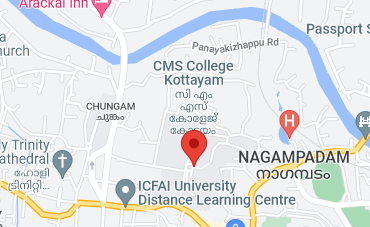Ashalakshmi C N
Education
- BSc., MG University, 2006
- MSc., CUSAT, 2008
- M.Phil., MG University, 2015
Area of Specialization
- Environmental Biotechnology
- Environmental Science
- Molecular Ecology
- Molecular Biology
- Conservation Genetics
Being trained in interdisciplinary subject Environmental Biotechnology, my primary research interest lies in applying biotechnology tools to environment management and biodiversity conservation.
Molecular ecology and Conservation genetics:
Molecular ecology combines the molecular biology tools with ecological data to understand the process of evolution and speciation. Molecular marker-based studies help to understand the spectrum of genetic diversity within the taxa of interest. My interests lie in standardization of DNA extraction from different samples (scats & faecal samples, blood, cells & tissues) followed by DNA barcoding based on appropriate molecular markers and utilize it as efficient tool for biodiversity inventorying and species conservation efforts.
On these lines, I was involved in standardization of a non-invasive PCR-RFLP technique for the study of Indian felids, which could aid in molecular based monitoring of elusive carnivores.
Relevant Publication:
BMC Res Notes. 2010; 3: 159.
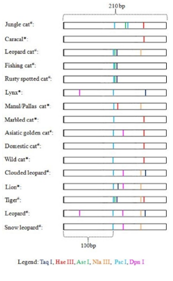 |
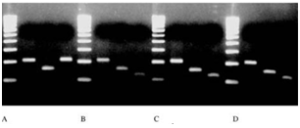 |
Molecular data derived from mitochondrial and nuclear markers in conjunction with morphological data was used to clarify the species status of Hanuman langurs, a widely distributed Asian Colobine monkey. The study involved molecular phylogenetic and population genetic analysis to resolve the phylogenetic relationship.
Relevant publication: Conservation Genetics.2015; 16(1):43-58
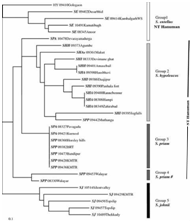 |
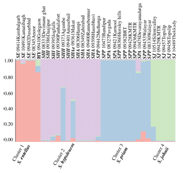 |
I am interested in exploring the utility of in-silico analysis based on DNA sequences retrieved from Databases and used the same to understand molecular evolution and for evaluating genetic diversity of taxa. At present, I am trying to explore invasion genetics of selected invasive plants of Kerala via DNA based studies.
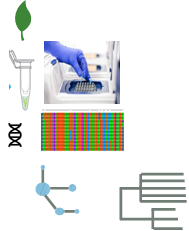
Environmental Monitoring:
Water Quality Monitoring
The sustained monitoring of aquatic ecosystem is essential for human and aquatic health. The student-based short-term projects have been carried out to monitor various water bodies like rivers, canals, wells etc in Kottayam locality. The physical, chemical and bacteriological parameters were analysed to test the water quality and making inferences.
Environmental Microbiology
The short-term student projects have been carried out to assess the microbial diversity of soil and water samples. Microbes capable of producing specific enzymes, pigments and those capable of bidegradation were identified and characterized.
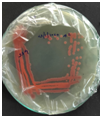 |
 |
Optimization of microbial pigment from Serratia sp.
UG Course
BT1812103 Molecular Biology
BT1812603 Molecular Biology (P)
BY1815108 Environmental Sciences and Human Rights
BY1815608 Environmental Sciences and Human Rights (P)
BT1815108 Applied Molecular Biology
BT1815608 Applied Molecular Biology (P)
BT1815401 Ecotourism
BT1816109 Recombinant DNA Technology
BT1816609 Recombinant DNA Technology (P)
PG Course
BT1922105 Molecular Biology
BT1923112 Environmental biotechnology
BT1923603 Laboratory Course III
BT1924302 IPR, Biosafety and Biodiversity
Oral Presentation
In-silico evaluation of genetic and haplotype diversity of Vitex trifolia (Lamiaceae) using chloroplast DNA markers, International Conference on Emerging trends in Plant Science Research, Catholicate College, Pathanamthitta.March 6-7,2023.
Isolation of pigment producing novel bacterial strain -a source of colourant for industrial applications. Bioresources and Commercial Utilization: Trends, Market, Supply chain and Sustainability.Kerala Biodiversity Board Rebuild Kerala Initiative, KSBB, Trivandrum, February 2022.
Poster presentation
Metabolite profiling of earthworm Perionyx ceylanensis using HILIC MS techniques Second International Conference on Frontiers of Mass Spectrometry, 2015, Mahatma Gandhi University, Kottayam.
Evaluation of a method to determine pesticide residues from earthworms sublethally exposed to ethion using LC Q ToF MS”. Second International Conference on Frontiers of Mass Spectrometry, 2015, Mahatma Gandhi University, Kottayam.
Evaluation of multiple nuclear markers for inferring species study: A case study in Hanuman langurs. 79th Annual Meeting of the Society of Biological Chemists,2010, Indian Institute of Science, Bangalore.
- First Rank in M.Phil Environmental Management, MG University, 2015
- ICAR-ASRB NET ENVIRONMENTAL SCIENCE , 2017
Biotechnology
Department
